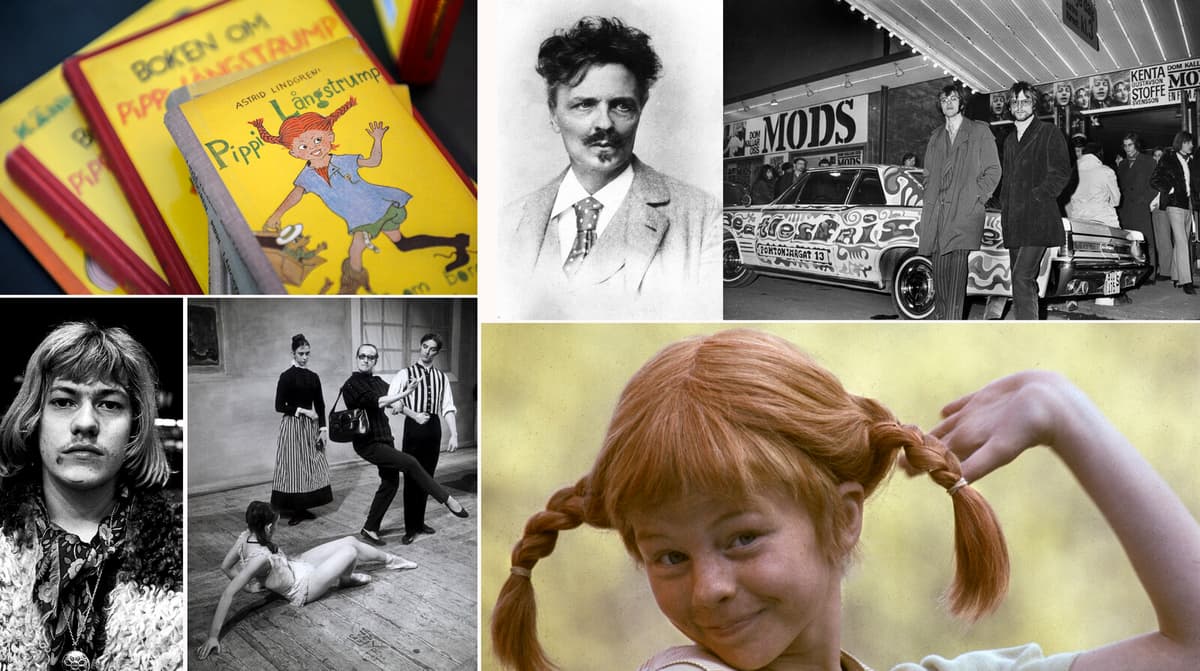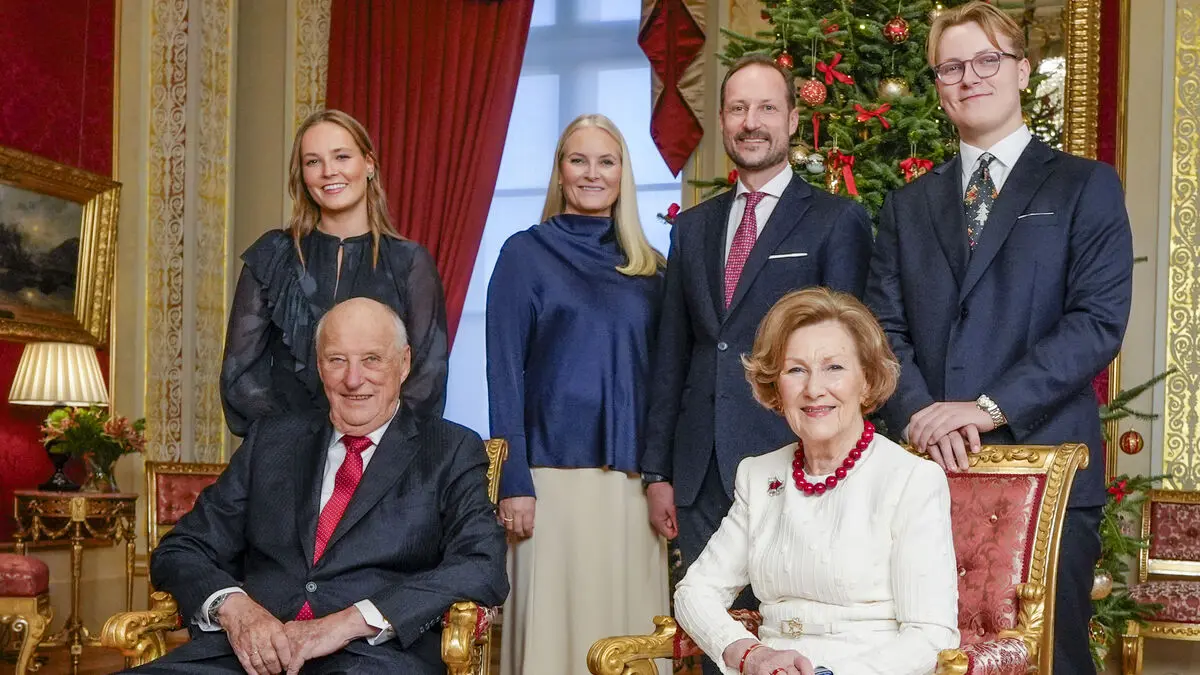Literature, prose:
“It's all right” by Carl Jonas Love Almqvist.
“Getting married (Marriage stories 1–2)” by August Strindberg.
“The Saga of Gösta Berling” by Selma Lagerlöf.
“Muittalus sámid birra. A book about the life of the Lapps” by Johan Turi.
“Kallocain” by Karin Boye.
“Pippi Longstocking” by Astrid Lindgren.
“The Emigrants” by Vilhelm Moberg.
“Katitzi” by Katarina Taikon.
“The disgusting man from Säffle” by Maj Sjöwall and Per Wahlöö.
Literature, poems – compiled in an anthology:
“If I were to mourn, then I would be crazy” from “Helicon's flowers” by Lasse Lucidor.
“Drink from your glass, see Death is waiting for you”, Fredman's epistle no. 30 from “Fredman's epistles” by Carl Michael Bellman.
“Some words to my daughter, if I had one, 1–33” from “Poetic attempts” by Anna Maria Lenngren.
“Friend! In the moment of destruction” by Erik Johan Stagnelius.
“The triumph of existence” from “September lyre” by Edith Södergran.
“It's most beautiful when it's twilight” from “Chaos” by Pär Lagerkvist.
“The stars don't care” from “A dead dancer's songs” by Nils Ferlin.
“Euphoria” from “Ferry song” by Gunnar Ekelöf.
“The half-finished heaven” from “The half-finished heaven” by Tomas Tranströmer.
“The marriage question I–II” from “Domestic peace” by Sonja Åkesson.
Image and form:
Lime painting in Härkeberga church by Albertus Pictor.
Gripsholm Castle with the state portrait collection.
Self-portrait with allegories by David Klöcker Ehrenstrahl.
The Royal Palace by Nicodemus Tessin the Younger, Carl Hårleman.
“Nordic summer evening” by Richard Berg.
Lilla Hyttnäs, Sundborn by Karin and Carl Larsson.
“Paintings for the temple” by Hilma af Klint.
“The Tomte Bob children” by Elsa Beskow.
Stockholm City Hall by Ragnar Östberg.
“Sitting… Six months later. Version A” by Öyvind Fahlström.
Music:
“Drottningholms music” by Johan Helmich Roman.
“Sing with us, mom”, first booklet, by Alice Tegnér.
“Midsummer Vigil, Swedish rhapsody no. 1 for large orchestra, op 19” by Hugo Alfvén.
Three recorded songs with the fiddler Hjort Anders Olsson, Hjort Anders Olsson.
“Moving song” and “To the cottage and home” by Lars Sikku, Frida Johansson.
“Calle Schewen's waltz” and “Meeting in the monsoon” by Evert Taube.
“Disguised God, op 24” by Lars-Erik Larsson.
“Aniara” by Karl-Birger Blomdahl.
“Jazz in Swedish” by Jan Johansson.
Symphony No. 7 by Allan Pettersson.
Film and performing arts:
Drottningholms Palace Theatre by Carl Fredrik Adelcrantz.
“The Lion's Cub” at Sundsvall Theatre by Frida Stéenhoff.
“A Dream Play” by August Strindberg.
“The Phantom Carriage” by Victor Sjöström.
“Golden Rain” with the couplet “The infamous horse from Troy” by Karl-Gerhard.
“Miss Julie” by Birgit Cullberg.
“The Seventh Seal” by Ingmar Bergman.
“They call us mods” by Stefan Jarl and Jan Lindqvist.
“Dad's little boy” by Franz Arnold, Ernst Bach and Nils Poppe.
“Medea's children” at Unga Klara, Suzanne Osten and Per Lysander.
Learning and non-fiction:
“The Revelations of Saint Birgitta” by Saint Birgitta.
“History of the Nordic peoples” by Olaus Magnus.
“Christina's autobiography” by Queen Christina.
“Lapland journey” by Carl von Linné.
“Dream book” by Emanuel Swedenborg.
“The saga of the gods of our fathers” by Viktor Rydberg.
“The wonderful destinies of the Swedish people” by Carl Grimberg.
“The century of the child” by Ellen Key.
“Crisis in the population issue” by Alva and Gunnar Myrdal.
“Milestones” by Dag Hammarskjöld.
Law and justice:
Magnus Eriksson's law of the land by King Magnus Eriksson.
The Law of 1734. Decision in the Riksdag and confirmed by the king.
The Freedom of the Press Act of 1766. Decision in the Riksdag and confirmed by the king.
The principle of public access to information.
The Constitution of 1809. Decision in the Riksdag and confirmed by the king.
The Code of Judicial Procedure. The Swedish Riksdag.
The European Convention. The Council of Europe.
The Penal Code. The Swedish Riksdag.
The Constitution of 1974. The Swedish Riksdag.
The right to roam.
Religion:
Husaby church.
Vadstena Abbey, Saint Birgitta.
“Horologium Mirabile Lundense”, probably by Nicolaus Lilienvelds and others.
The Malmö hymn book by Christiern Pedersen.
The Bible of Gustav Vasa, Swedish translation probably by Olaus Petri, Laurentius Andreae, Laurentius Petri and others.
The Conventicle Act, the Swedish state, the estates of the Riksdag.
Marstrand Synagogue.
“O great God” by Carl Boberg.
The decision of the Church Assembly to open the priesthood to both men and women, the Church Assembly of the Church of Sweden.
“The Communicants” by Ingmar Bergman.
Economy:
The Falun copper mine.
The Swedish Central Bank, the Swedish Riksdag.
The Great Partition.
The Freedom of Trade Act by Johan August Gripenstedt.
The industrial landscape in Norrköping by, among others, Carl Theodor Malm and Theodor Glosemeyer.
Harsprånget in the Lule River, the Swedish Riksdag.
The pension reform, the Swedish Riksdag.
The Saltsjöbaden Agreement, LO and SAF.
Ikea Älmhult, Ingvar Kamprad.
The special taxation of spouses, the Swedish Riksdag.
Inventions:
Air and fire machine, Mårten Triewald.
“Systema naturae” by Carl von Linné.
The Table Commission by Pehr Wargentin.
The tile stove by Fredrik Wrede and Carl Johan Cronstedt.
The Parliamentary Ombudsman, Hans Järta and the Peasants' Estate.
The Göta Canal by Baltzar von Platen.
The Nobel Prize by Alfred Nobel.
The spherical ball bearing by Sven Wingquist.
The Viggen, Saab.
Paternity leave, the Swedish Riksdag.
Publicity:
Gustavianum in Uppsala, Gustav II Adolf and Olof Rudbäck.
The Constitution of 1634 by Axel Oxenstierna.
The Lapp codicil, the Swedish and Norwegian states.
The Swedish Academy's dictionary, Gustav III.
“A reader for elementary school” by Norstedts publishing house and Fredrik Ferdinand Carlsson.
The Riksdag building by Helgo Zettervall and Aron Johansson.
Brunnsvik folk high school by Karl-Erik Forsslund.
The Vasaloppet, Anders Pers and IFK Mora.
Per Albin Hansson's folkhem speech by Per Albin Hansson.
The Radio House by Erik Ahnborg and Sune Lindström.






